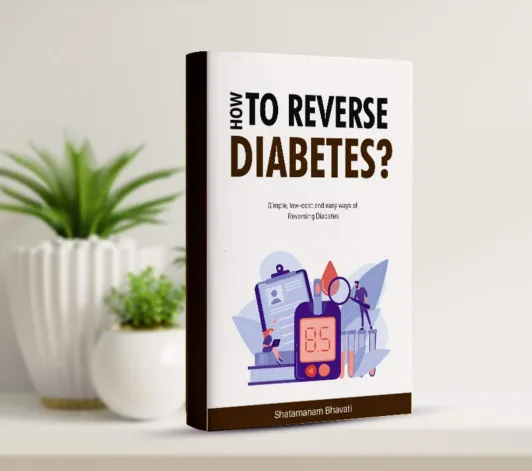 Contact us
Contact usIntent
Community
Studio Organo Concepts
About Us
Subsidaries
Studio Organo
TS RERA No.P02400003403.
TS RERA No.P02400003403.

Good health is a pot of gold that we all chase (aside from actual pots of gold, of course)!
One that is a drive built into our DNA, which serves as the most basic survival mechanism for our species.
Certainly, as a collective and as we learn more about what “health” is...
And what contributes to bettering it, we have naturally become more conscious about making changes that will support this endeavour.
As long back as 1948, The World Health Organisation (WHO) described it as:
“A state of complete physical, mental, and social well-being and not merely the absence of disease or infirmity.
Although physical and mental are usually the two branches of health found in general discussion, there are, of course many other important aspects to it – such as financial and spiritual health.
What is fascinating though is that all sides of health are intrinsically linked to each other anyway!
When you improve one, you will undoubtedly benefit the other(s)

Taking a closer look at what factors contribute to an individual’s health, diet is possibly the first thing that comes to mind.
And for a good reason – you are what you eat.
What we consume becomes the building blocks for our physical health.
Unfortunately, the availability of nutritionally barren fast foods and genetically modified produce has rendered our bodies at a loss.
Gluten intolerances are at their height...
Arguably due to the modern manufacturing process of bread that does not allow for gluten to develop properly.
Allergies are far more prevalent now, and studies suggest that our desire for perfectlyshaped, pesticide-ridden crops, not indigenous to our lands, could have a part to play.

Ideally, we should be looking to increase our intake of fresh, whole foods and decrease our intake of refined foods.
Further, mounds of evidence draw the link between a happy gut and a happy mind.
Pre-prepared, processed foods, and even the over-use of antibiotics, have been proven to affect our gut biomes severely and deplete the amount of good bacteria swimming around in our systems.
By correcting our diets, though, which includes taking in clean drinking water, our bodies are given the fuel to function optimally.
The effects of a good diet are far-reaching upon our health, from making your mind more productive to boosting your immunity to using specific herbs/spices to heal ailments – diet really can be a game-changer.

Taking a closer look at what factors contribute to an individual’s health, diet is possibly the first thing that comes to mind.
And for a good reason – you are what you eat.
What we consume becomes the building blocks for our physical health.
Unfortunately, the availability of nutritionally barren fast foods and genetically modified produce has rendered our bodies at a loss.
Gluten intolerances are at their height...
Arguably due to the modern manufacturing process of bread that does not allow for gluten to develop properly.
Allergies are far more prevalent now, and studies suggest that our desire for perfectlyshaped, pesticide-ridden crops, not indigenous to our lands, could have a part to play.

Ideally, we should be looking to increase our intake of fresh, whole foods and decrease our intake of refined foods.
Further, mounds of evidence draw the link between a happy gut and a happy mind.
Pre-prepared, processed foods, and even the over-use of antibiotics, have been proven to affect our gut biomes severely and deplete the amount of good bacteria swimming around in our systems.
By correcting our diets, though, which includes taking in clean drinking water, our bodies are given the fuel to function optimally.
The effects of a good diet are far-reaching upon our health, from making your mind more productive to boosting your immunity to using specific herbs/spices to heal ailments – diet really can be a game-changer.

Taking a closer look at what factors contribute to an individual’s health, diet is possibly the first thing that comes to mind.
And for a good reason – you are what you eat.
What we consume becomes the building blocks for our physical health.
Unfortunately, the availability of nutritionally barren fast foods and genetically modified produce has rendered our bodies at a loss.
Gluten intolerances are at their height...
Arguably due to the modern manufacturing process of bread that does not allow for gluten to develop properly.
Allergies are far more prevalent now, and studies suggest that our desire for perfectlyshaped, pesticide-ridden crops, not indigenous to our lands, could have a part to play.

Ideally, we should be looking to increase our intake of fresh, whole foods and decrease our intake of refined foods.
Further, mounds of evidence draw the link between a happy gut and a happy mind.
Pre-prepared, processed foods, and even the over-use of antibiotics, have been proven to affect our gut biomes severely and deplete the amount of good bacteria swimming around in our systems.
By correcting our diets, though, which includes taking in clean drinking water, our bodies are given the fuel to function optimally.
The effects of a good diet are far-reaching upon our health, from making your mind more productive to boosting your immunity to using specific herbs/spices to heal ailments – diet really can be a game-changer.

Physical activity is often the next thing we think about when it comes to health.
Humans are designed to be an active species, but life in the cities has increasingly made us more sedentary.
Whether that’s because a regular office job requires someone to sit all day. Or whether people are just too tired from the mundane rat race, or whether it’s simply because inner-city housing offers little in the name of space to exercise in -- people have become less mobile.
Sometimes because of safety, sometimes because of climate or pollution levels in the cities– whatever the reason – people now commonly rely on gym memberships to fulfil the irrequired quotient of movement.
Better would be being able to exercise outside, whilst not having to worry about traffic or air quality.
Since during exercise, one of the things that we are attempting to do is improve the oxygen saturation of our blood (thereby boosting our heart health); what use is it when our only options are to work out in either pollution or air conditioning?

And why is it that during any vacation we get from work, people long to getaway to the mountains or countryside? It’s as though we all know, in our depths, what the body craves for.
In this moment, it is quite clear to see that perhaps a gentle morning walk in beautiful and clean surroundings offers a more tangible benefit to the body than running for half an hour on a treadmill in enclosed surroundings.
The importance of sleep
Sleep is a thing we all secretly know contributes to our day-to-day well-being, but perhaps not enough importance is given to it.
The fact is that we do the majority of our healing whilst asleep, more specifically so: whilst in a deep sleep. When we are unwell, the first advice given is to rest.
If we break a limb, we are asked to rest it. The point is that without rest, the body does not repair.
Not to mention that without proper sleep, our mental state will also go awry. Indeed, lack of sleep has been blamed for causing (or exacerbating) many conditions, from Diabetes to Alzheimer’s

Further, Human Growth Hormone (HGH) is produced in the body and plays a vital role in all things, from cell production and physical performance to recovery from disease and boosting metabolism.
This hormone is produced in the glands under specific conditions, and one of those ways is through sleep.
Yes, good quality deep sleep is actually considered the easiest and best long-term approach to upping your HGH levels.
The problem is that the modern working individual rarely gets adequate sleep.
Things like light/noise pollution in the cities, obsession with taking smartphones to bed and even eating late have contributed to us getting not only less hours of sleep but more worryingly, a lesser quality of it.
Stress management is something that is given a lot of weight these days, with the wide array of relaxation therapies and guidance available now on the market.
Having identified that stress affects our health, we are rushing to try everything out there to clear our minds because we know it makes us feel better.
Truly, conditions such as chronic stress and depression can have a huge negative impact on our health.
They range from causing hair loss to bowel problems to relationship issues – everything is game.
Interestingly, many of the mechanisms to improve stress are centred around ancient practices.
It is as though we (sometimes subconsciously) realise that the modern way of life as we know it does not promote internal peacefulness.
In reality, stress management is linked to our spiritual health – reducing tension and how to go about it has been taught for countless generations before
Perhaps that means to awake at sunrise and take in the start of the day in all its splendour.
Maybe that means to meditate and chant. It could even be just sitting comfortably in a quiet space
Easier said than done?
Quite; with the way we live in cramped and noisy city dwellings these days, it is no wonder there is such a struggle to find some simple peace and quiet.
Is it really the solution to book yoga classes at your local gym to give you an hour of relaxation, or is that just a quick-fix?
We have touched upon emotional health now, so it goes without saying that having a direction and purpose in life will also contribute to happiness, and therefore health.

We are made for purpose; a meaningless existence gives rise to a lack of well-being.
As the saying goes, “Idle hands are the Devil s workshop .
A lot can be done for our mental health by pouring energies into things that make us feel purposeful.
For some that may be looking after their children, for others that may be to find ways in which to contribute to bettering their community.
Whatever it is, finding meaning in what we do and living in the moment of it hugely contributes to our well-being.
So why do we say, “Health Begins at Home”?
Well because one’s physical, mental and social well-being – as laid out above – originates from one’s home life.
Home is where we eat most of our meals; where we source our food from will be local to our homes.
Should that be a glossy supermarket, or an organic farm? Home should be a place where we can potter around our grounds; a place where we have space and privacy to exercise in comfort.

Home is where we sleep at night, and so setting the best environment for rest should be of utmost importance to us – a space free from disturbances.
How we organise our homes and their surroundings will massively impact our stress levels.
And so being able to have like-minded neighbours will make us happier and more stable than having a new tenant next door every six months.
The home we choose exhibits our personality and purpose. Often in rented city apartments, we don’t even have the liberty to stamp our identities on our living spaces.
In essence, home really should be centred around how to promote these factors to their best.
It goes without saying, then, that a home that farms its own produce will be healthier than a home that relies on take-outs.
A home that allows for an uninterrupted and peaceful night’s sleep is a healthier home where people have to block out all kinds of noise and light before attempting to get their heads down.
We can’t escape this paradigm – it’s why the homes of our forefathers would have been healthier and ridden with less “modern” ailments, such as chronic stress and obesity, common markers of poor health.
Knowingly or unknowingly, our grandparents’ generation had healthier homes, which naturally paved the way to healthier (and more resilient) bodies.
Could now be the time we realise that and work to get back to our former glory? One hopes…
